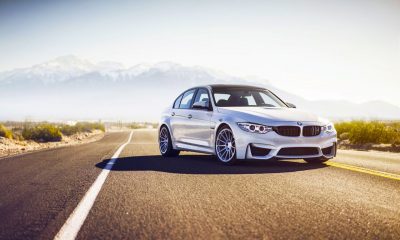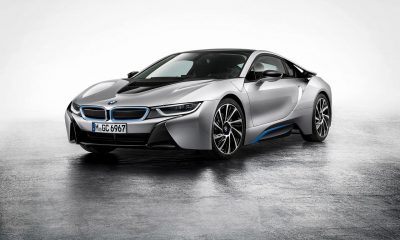
At Porsche, there are no conventions. Forbidding free thought? That’s forbidden. The only thing that matters is this question: how can we become even better? Let’s put it another way: can we redefine the limits of engineering? Can we reconcile apparent contradictions? Yes, we can. With Intelligent Performance.
The new 911 answers questions about the future of the sports car with a quantum leap in performance. By reducing fuel consumption, but not by suppressing emotions. By following a principle that has already changed everything once before: in 1974, with the first 911 Turbo.
Developed completely from scratch, the six-cylinder twin-turbo engines of the 911 Carrera models with a displacement of 3.0 litres embrace this principle and perfect it in a forwardlooking way. To be more precise: tremendous acceleration force even in the low rpm range is supplemented by the engine map of a 911 Carrera with the high rev limits typical of a sports car. In other words, high compression and a high engine speed combined with good modulation of power output and surprisingly low fuel consumption, thanks to the reduced overall displacement.
Expressed in figures, this means an extra 20 hp of power, an extra 43 lb.-ft. of torque and engine speeds of up to 7,500 rpm. And a reduced fuel consumption.
The engine of the 911 Carrera models develops 370 hp. The maximum torque of 325 lb.-ft. is available from as low as 1,700 rpm. With Porsche Doppelkupplung (PDK), the 911 Carrera can accelerate from 0 to 100 km/h in only 4.4 seconds and reach a top speed of 293 km/h.
The propulsive potential of the engine in the S models, featuring upsized turbochargers and independent exhaust system, is even more impressive. It generates a power output of 420 hp and the maximum torque is a mighty 368 lb.-ft., available from as low as 1,700 rpm. With Porsche Doppelkupplung (PDK) and Launch Control, the 911 Carrera S models sprint to 100 km/h in a mere 3.9 seconds. Top speed isn’t reached until 306 km/h.
What cannot be expressed in figures: the legendary sound of a 911 six-cylinder horizontally opposed engine. And the experience is all the more intense for it.
The stand-out qualities of the new twinturbo engines are their extraordinarily direct responsiveness and wide torque plateau, reached early in the low end of the rpm band. Combined with the high rev limit – and the legendary sound of a 911 six-cylinder horizontally opposed engine. In short: excellent performance that feeds back to the driver in an instant.



